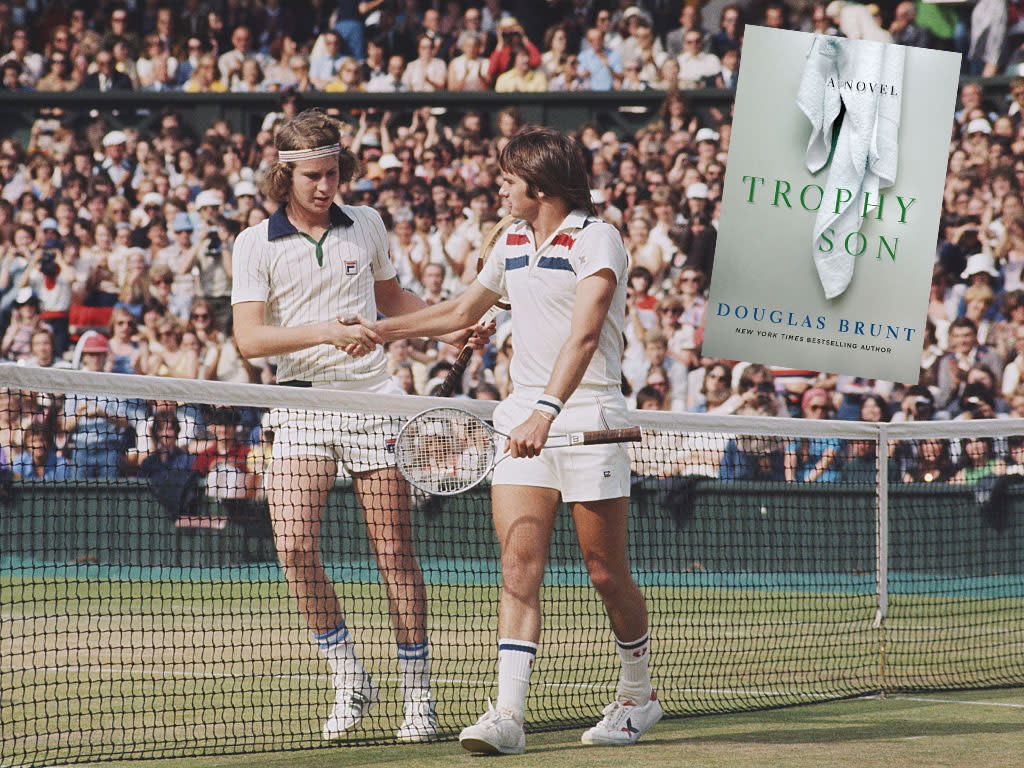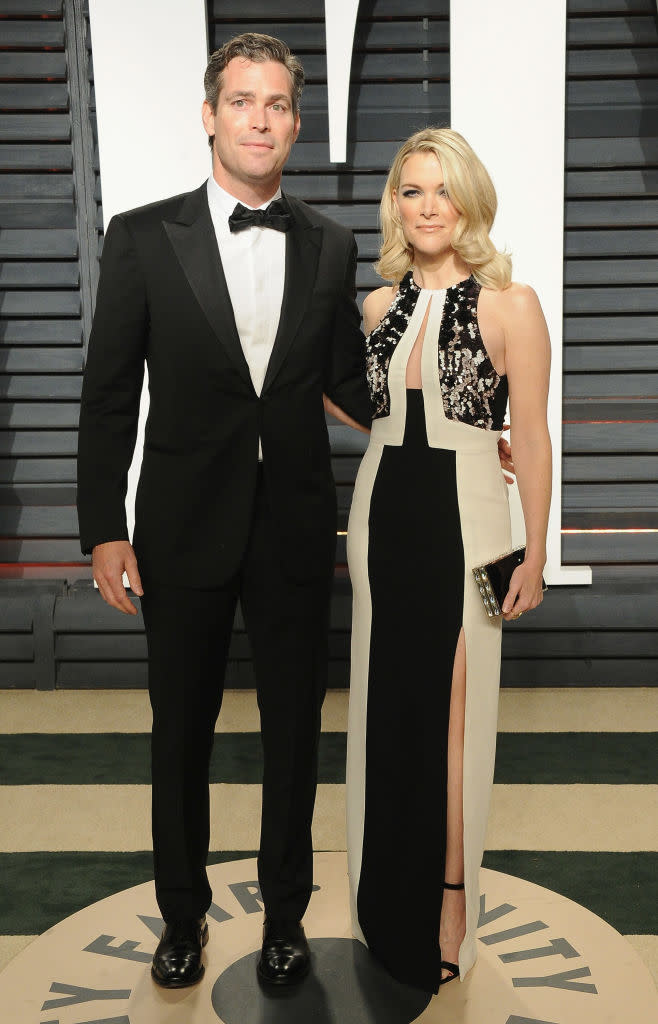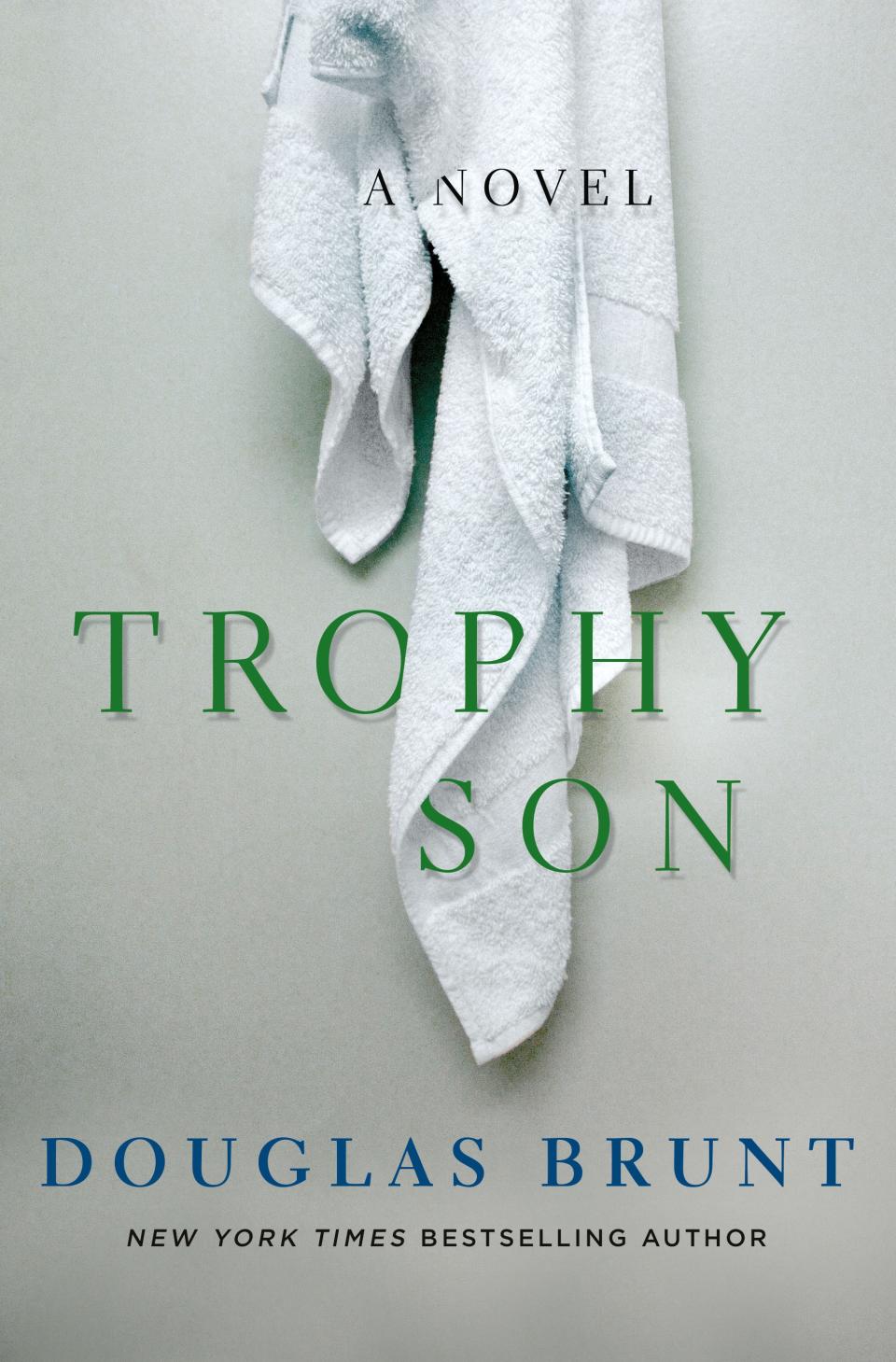A New Book Explores the Dark Side of Pro Tennis

There's a moment in the novel Trophy Son where a friend reminds main character Anton Stratis: "The bigger the star, the bigger the sacrifice." It's a theme that runs throughout the book, which follows tennis prodigy Anton as he deals with an obsessive and overbearing father, navigates the competitive world of professional sports (and the performance-enhancing drugs that inevitably come with it), and struggles to figure out who he is outside the court. Trophy Son (out May 30) is at once a fascinating look inside this milieu and also a cautionary tale about the dangers of our achievement-obsessed society. Below, author Douglas Brunt talks to T&C about the sports world, the domino effects of early excellence, and how he plans to raise his three kids with wife Megyn Kelly.

How did you come up with the idea for Trophy Son?
The approach I’ve had with all my books is to start with a very broad subject area and then narrow it down to a fictional story that explores the themes that are interesting - or troubling - to me. The first book (Ghosts of Manhattan) was Wall Street, the second book (The Means) was political fiction, and in this novel I started out with the idea of taking on sports.
Why tennis?
Tennis is really at the extreme of this. They can all be pretty grueling but with soccer and lacrosse, for example, you’re still meant to finish high school and go on to college. With tennis, if you’re very good at a young age, you don’t even go to your prom. You’re down at some tennis academy in Florida where you’re on the court 8 hours a day - it’s brutal.
It’s also a very isolating sport. In matches, you can’t speak to your coach. You’re just a bubble out there on the court. So in order to push these themes of how isolating this can be, and how it can stunt broader socialization and narrow a child's development, I thought tennis was a good way to go. Plus, I happen to love the sport and know a little bit about it.
What was your research process like?
I did interviews with tennis greats, like James Blake and John Isner. I also interviewed tennis pros who aren't well-known but who made all the same sacrifices but had just a little spark of a professional career and are now still orbiting the sport, either as a teaching pro or a coach. The very common theme is the domineering parent.
Speaking of, Anton's dad seems crazy.
I was stunned by how prevalent this was in tennis. If you look at top players, Steffi Graf, Andre Agassi, so many had a parent who was domineering to the point where you really had to question his sanity. It was nuts.
You have three young children (ages 7, 6, and 3). Has writing and researching this book provided a warning on how not to raise your kids?

Yes. I’m really troubled by the prevalence of single-sport specializations. I want my kids to do as many things for as long as they can. Specialization is a natural thing that should come later - it shouldn’t come for 8-year-olds. There is also a domino effect of all this. Let's take baseball, for instance. You’re practicing 12 months of the year, using the same muscle motions. This leads to all sorts of injuries which require surgeries. I've read a lot of research about the stream of opioid addiction that comes out of this. Opioids are overprescribed to these young athletes. They should only need a day or two on the Percocet but they’re prescribed 100 days of it. And so there’s a flood of former athletes who have an opioid problem.
Steroids play a big part in the book, in helping Anton get to where he wants to be.
I wanted to talk about steroids because that is a huge issue in sports now. Not too long ago, most of the world thought Lance Armstrong was this exceptional athlete. Then he comes out and admits to performance-enhancing drugs and he goes from saying, 'I’m clean' to using the level-playing field defense, which is, 'I’m not really cheating - everyone is doing this.' It’s not talked about very much in tennis. There is credible reporting about steroid usage in the sport and I wanted to address it.
Are there any aspects of Anton that you identify with?
Not me, personally, but I see it all the time. The parents, who are beyond just helicopter parenting, they just push, push, push. I have friends whose kids are a little bit older than mine and most of them are really reluctant about this whole thing but feel they need to do it - otherwise they won’t be mainstreaming their kid.
Where does this obsession come from? Do you think that as people become wealthier, their idea of success reaches unhealthy levels?
I’m sure it’s positively correlated. I'm from Manhattan so maybe it's skewed since this city isn’t exactly America, but I think there are a lot of people who make some money as a lawyer, doctor, or on Wall Street and they may not love their job but the money’s got to count for something. They work so hard but it's like, ‘Where am I going to put this money so I feel like I didn’t do it all for nothing, that it’s not just going to sit in my bank? Well, at least junior can go be a photographer or a tennis star.' They'll put money toward private coaching or other opportunities so their kids can do something they’re passionate about. Or maybe their kids can do something their parent is passionate about.
Where does this all lead? Is change possible?
It probably will move around and revolve from sport to sport, but I think it’s always going to be there. We have a fascination with consuming this entertainment and the money will always be there. But what we can try to work on is educating parents and making some reforms in school systems and in professional leagues. Schools should prohibit out-of-season practice, the minimum age requirement should go up. There is more research available to parents now and top athletes have started speaking out about the perils. From a youth perspective, we can make it better. From a celebrity and money perspective, I think that’s just how it’s going to be.
I do hope Trophy Son starts a conversation, gets people talking and thinking about it. There is a a rising tide to changing the way our youth athletics have gotten completely out of control, so hopefully this can contribute to that momentum. Above all, though, the book is meant to be an entertaining read. I don’t mean to bash tennis or sports at all, I think an athletic experience is a very valuable thing. I just don’t want to cramp the development of our little ones.

You Might Also Like


